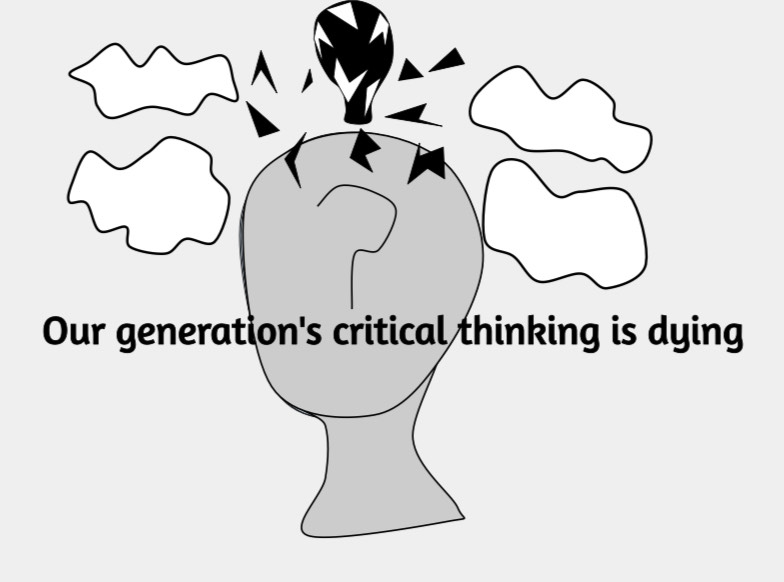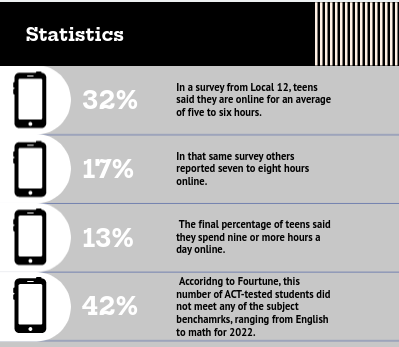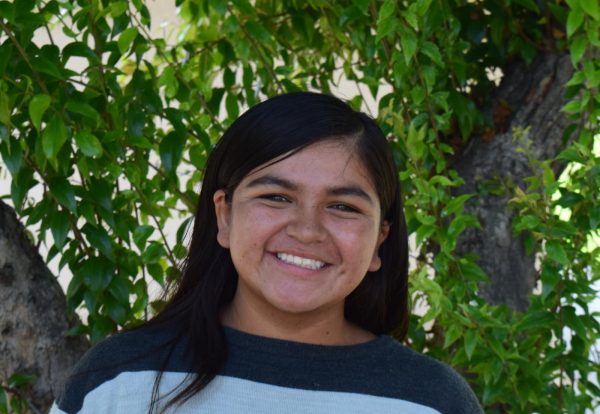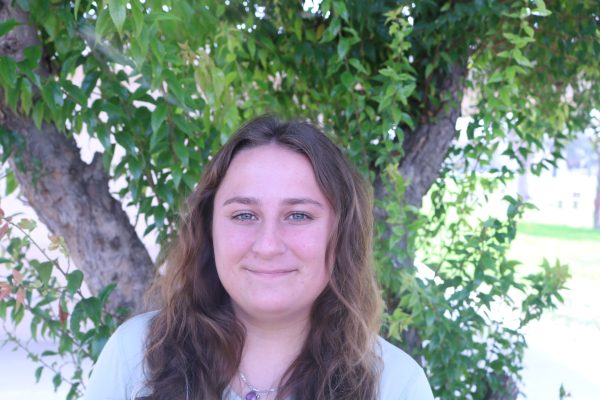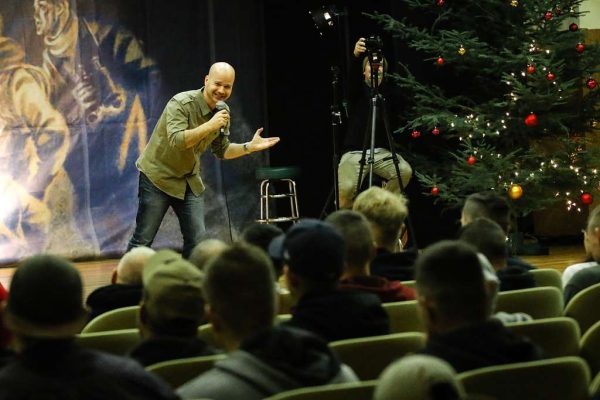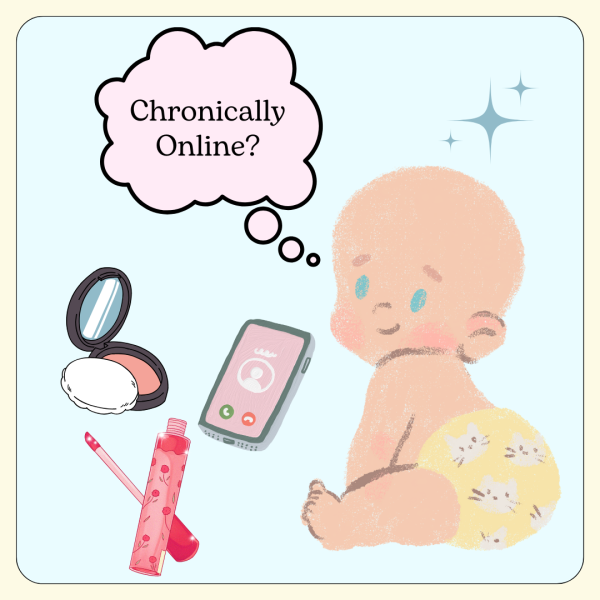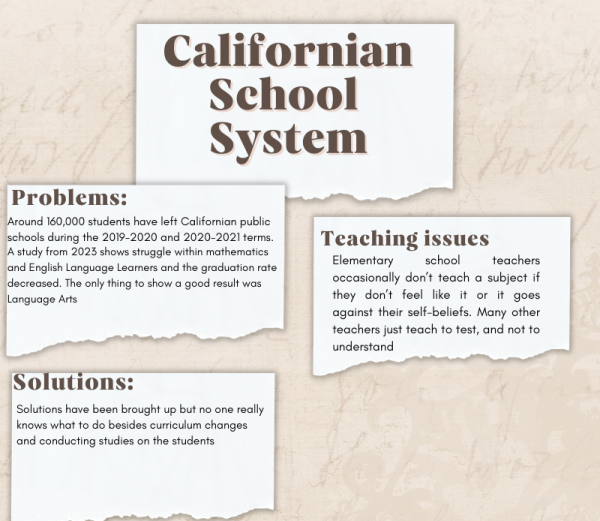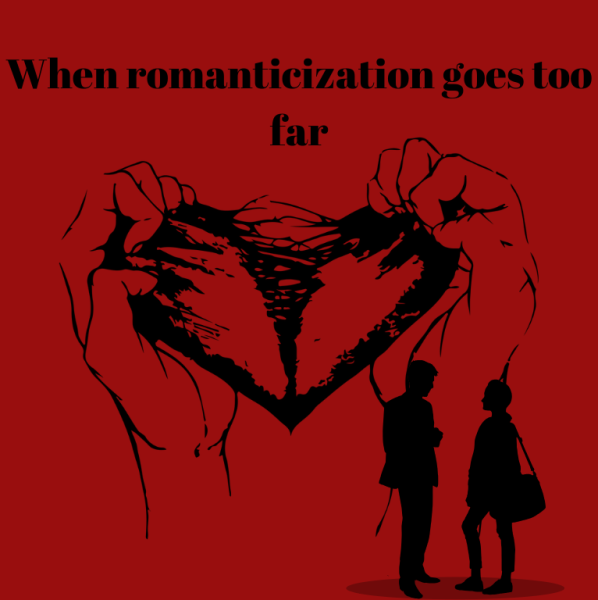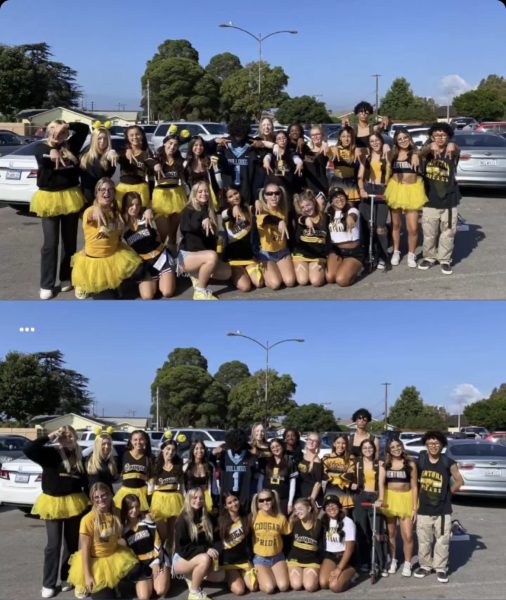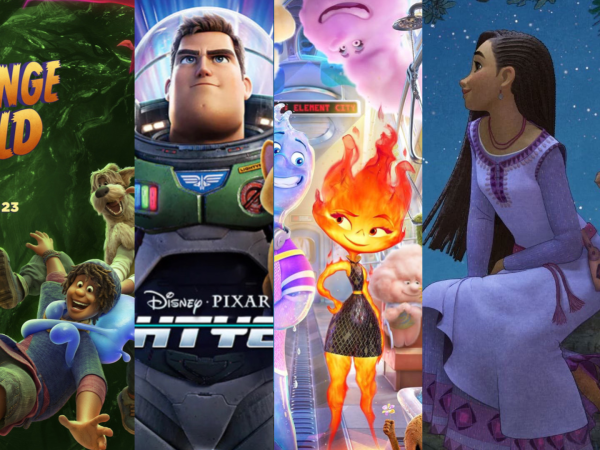VIEWPOINT: Gen Z’s critical thinking is dying
Critical thinking is a neccesity in life, but our generation is losing the skill, and it shows. Graphic by Brooklyn Carrillo
April 25, 2023
If I were to ask you why the curtains are blue in a scene of a novel, could you answer me with something original, not an interpretation you remember vaguely from a middle school English class? Blame it on COVID-19, or the devices thrown at us since we could walk, or even on teachers if you must, but there is no doubting the fact that our generation’s critical thinking is withering away.
The Oxford Dictionary defines critical thinking as, “the objective analysis and evaluation of an issue in order to form a judgment.” Critical thinking is, essentially, the ability to think for yourself. In an age of mass-spread misinformation and social media, this skill is more crucial than ever. And yet, right when we need it most, it is escaping us.
While it is possible to get through certain parts of life based solely on memorization or ability to follow directions, those skills will only get you so far. Only so many points can be made by being told what connections to make, only so much can be understood without looking deeper than information that is handed to you.
It is hard to pinpoint the cause or beginning of this drop in critical thinking, but it would be ignorant to believe that it has nothing to do with social media. On sites like Tiktok, everything is available at our fingertips, with limited time to truly explain any nuance on any topic. Why would an entire generation of children continue to think for themselves, if @cheesefart420 will do it for them? They will not. Our critical thinking is dying, because there is no desire to preserve it.
When online for such long periods of time, we stop developing our communication skills, which does tie in with critical thinking. It is so important that it is considered the, “skeletal structure of critical thinking,” according to the Higher Education and Review.
I see less of [critical thinking] when something [warrants] effort, — Rebeckah Rithner
And when teens are spending five to six hours online on average, as said by the Local 12 in their article, these skills only continue to decrease. This is not always so obvious because despite the negative effects social media can have, it also does allow more information to be retrained and shared. Which leads to teens sharing their opinions in different ways, often in video or written post format.
It is important to have personally held beliefs, and to voice those views, but ask yourself, is what you say truly your own opinion or a mere echo of someone else’s? One person says something, another repeats it without a second thought, and the cycle continues until, before you know it, all we have is a generation of individuals who have a unanimous agreement built on a single interpretation from one person. No one has to think for themselves. A never ending cycle, an overwhelming echo chamber.
Critical thinking is not some unthinkable, grandiose display of academia. It is about asking questions, making connections, and arriving at your own conclusions. It is about what you think, what you see that no one else can, the moment that you put together all the details, without being told how.
This does not mean that guidance is never needed or that you cannot agree with someone else’s view, both are necessary in order to better develop our ability to think critically. But, our generation has stopped trying after mistakes, we have become coddled, both by technology and adults.
“I see less of [critical thinking] when something [warrants] effort,” government and history teacher Rebeckah Rithner said. “Critical thinking requires [you] to apply yourself more.”
The change here must come from the individual. Read a book because you saw it in the library, not a review on YouTube. Start to question the things you are told, and make assumptions and connections based on what you know. Exercise your brain like you would a muscle.
There has to be active, intentional, push back against this deterioration, and that starts with acknowledging that it exists. Our generation has a problem, and we can only fix it one child at a time.

